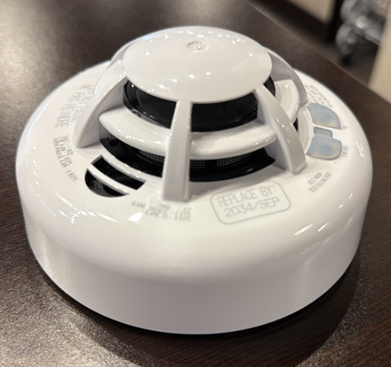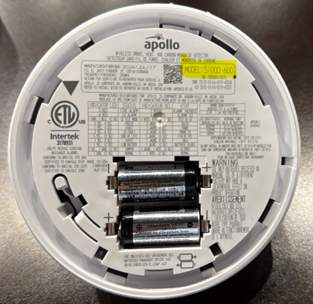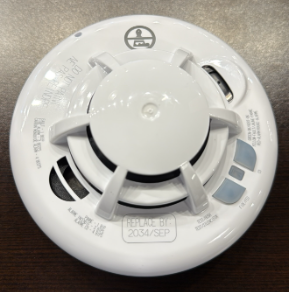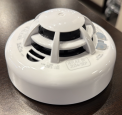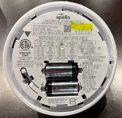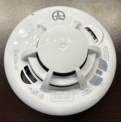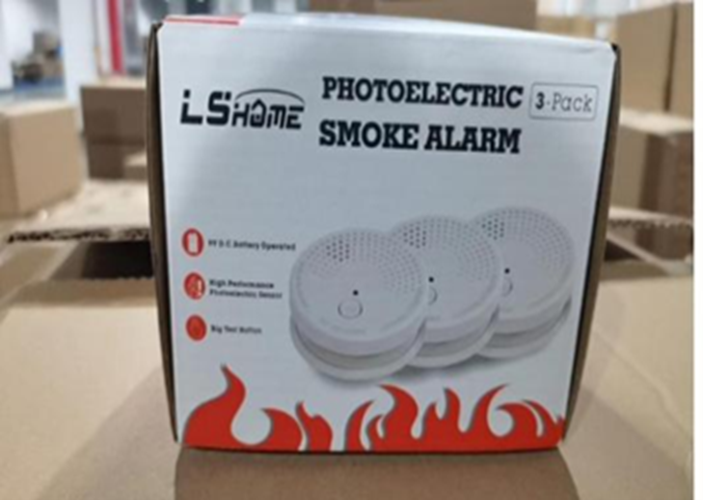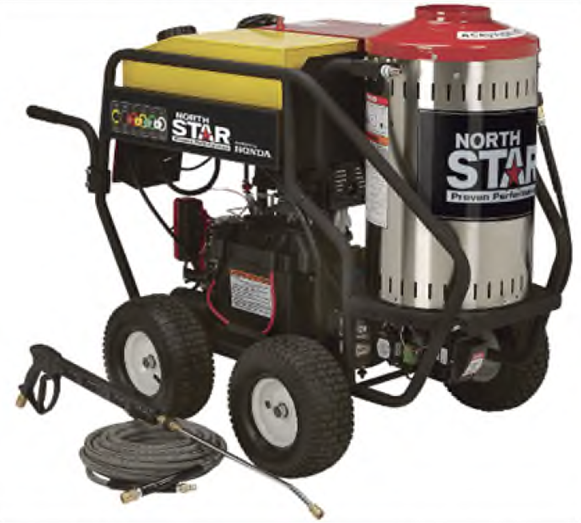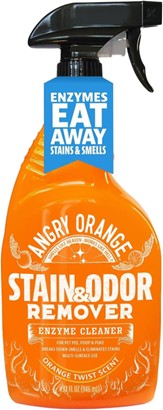The recalled detectors can malfunction and fail to alert consumers of a fire or carbon monoxide (CO) leak, posing a risk of smoke inhalation, carbon monoxide poisoning or death.
About 50,000
Vivint toll-free at 800-281-9667, email at recalls@vivint.com, or online at https://www.vivint.com/smoke-co-recall or https://www.vivint.com/ and click on “Product Recall” at the bottom of the page for more information.
Recall Details
This recall involves Apollo America Combination Smoke and Carbon Monoxide Detectors with model number 51000-600. The recalled detector was sold in a white color. The front of the recalled detector has the text “Replace by” followed by a date ranging from 2034/June to 2034/October. “Apollo” and the model number 51000-600 are on the back of the detector.
Note: If you choose to dispose of the detector’s primary/non-rechargeable lithium battery, do not throw the battery in the trash, or in the general recycling stream (e.g., street-level or curbside recycling bins). Lithium batteries must be disposed of differently than other batteries, because they present a greater risk of fire. Your municipal household hazardous waste (HHW) collection center or battery recycling boxes found at various retail and home improvement stores may accept this lithium battery for disposal. Before taking your battery to a HHW collection center, contact that office ahead of time and ask whether it accepts lithium batteries. If it does not, contact your municipality for further guidance.
Vivint is sending a free replacement detector to all known purchasers. Consumers should continue using the recalled detectors until they install the replacement detector. Consumers should install the replacement detector immediately upon receipt. Detailed instructions on how to remove the recalled detector and install the replacement can be found here: Replacement Guide. Consumers should contact Vivint with questions about whether their detector is included in this recall or the status of their replacement detector. Once the replacement detector is installed, consumers should write “recalled” on the original product, remove the batteries, dispose of the detector in their household garbage, and dispose of the batteries in accordance with local and state regulations.
Consumers can review Protect Your Family from Carbon Monoxide Poisoning | CPSC.gov for more information about preventing carbon monoxide poisoning.
None reported
Vivint, of Lehi, Utah
Note: Individual Commissioners may have statements related to this topic. Please visit www.cpsc.gov/commissioners to search for statements related to this or other topics.
If you are experiencing issues with a recall remedy or believe a company is being non-responsive to your remedy request, please use this form and explain the situation to CPSC.
The U.S. Consumer Product Safety Commission (CPSC) is charged with protecting the public from unreasonable risk of injury associated with the use of thousands of types of consumer products. Deaths, injuries, and property damage from consumer product-related incidents cost the nation more than $1 trillion annually. Since the CPSC was established more than 50 years ago, it has worked to ensure the safety of consumer products, which has contributed to a decline in injuries associated with these products.
Federal law prohibits any person from selling products subject to a Commission ordered recall or a voluntary recall undertaken in consultation with the CPSC.
For lifesaving information:
- Visit CPSC.gov.
- Sign up to receive our email alerts.
- Follow us on Facebook, Instagram, X, BlueSky, Threads, LinkedIn and Truth Social.
- Report a dangerous product or product-related injury on www.SaferProducts.gov.
- Call CPSC’s Hotline at 800-638-2772 (TTY 800-638-8270).
- Contact a media specialist.


